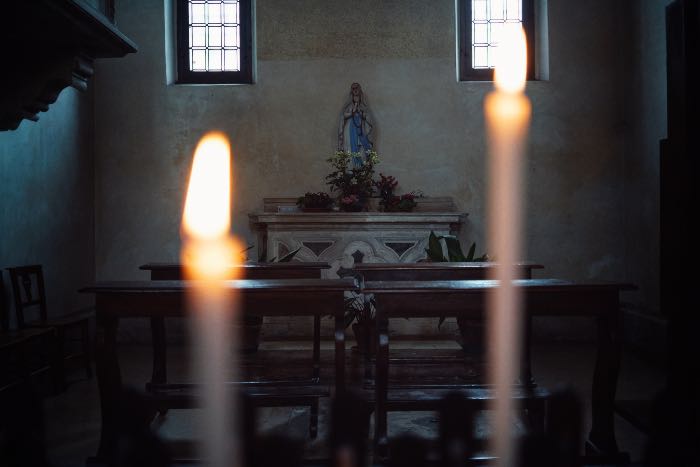I find Jesus’s public prayers in John to be pretty cringe. They read, at once, like the insecure journal entries of an angsty teenager and the overblown confidence of…an angsty teenager. Of course, I’m speaking from experience.
What I’m saying is that I don’t enjoy them. Because they are so performative. Which is exactly what they are trying to be.
Jesus’s prayers are performative.
Of course, Jesus says this directly. The times he prays throughout the gospel of John, he communicates in the prayer that he is praying this way so that he can be observed.
Which is also why it is so cringey to observe. Because we’re aware of the levels of engagement here: we are reading a story captured by a person who observed Jesus praying out loud to God and saying that he’s praying out loud to God so that the person observing him will capture him praying…
It has the vibe of the person reading the stage directions in character. “I love you. They kiss.”
He also feels the need to say to God that God obviously knows all this, but he’s going to say it anyway. Which, like the postmodern voyeurism we’re already wrestling with, has an extra-weird vibe coming from Jesus.
And yet I know I’m being harsh about it. Because this isn’t a work of literature in which I’m being called upon to critique with a particular form of criticism. This is Jesus, who—even at prayer—is never not teaching.
Pray Anyway
I’m reminded of a question we asked our liturgy professor in seminary. A good part of our grade involved leading liturgy, including a Eucharistic Prayer. Something we were not yet ordained to do.
We were more than a little uncomfortable with this.
The professor’s response was natural and obvious. But it profoundly shaped me. Precisely because it so resonated with Scripture, Theology, and Everything.
He said that, when we approach the altar, to stop and pray.
Pray to God.
Be it seeking permission, I suppose. But also with understanding. For why would God not want us to practice and learn?
The act of praying, though, in seeking permission, is valuable. Even in naming the generosity of wanting us to assist in the glory. There is praise and glorification and thanksgiving and all manner of things in there.
The point isn’t whether or not God knows our intentions. Or whether or not God wants us to do something. It’s about the opportunity to just…do it. To pray anyway.
Turn the focus from Jesus to us.
Since Jesus is praying performatively to teach and help us, the focus of this story actually isn’t Jesus. He’s the example, not the subject. And in Jesus’s prayer, the subject of the prayer is God and the disciples.
Jesus is showing what our praying anyway focuses on: God and our neighbors.
Which should be pretty obvious. But given the way we often pray, we could use some more direction.
